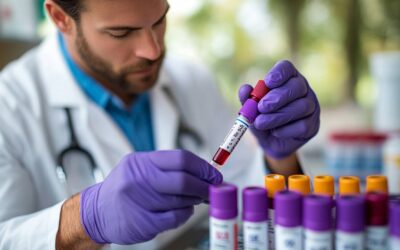Overview of Addiction Treatment in Norwell, MA
Addiction treatment services in Norwell, MA, are designed to address the diverse needs of individuals seeking recovery from substance use disorders. The town hosts a variety of programs that cater to different stages of addiction, offering both inpatient and outpatient options to suit varying levels of care requirements. These services are structured to provide patients with a comprehensive approach to recovery, focusing on physical, psychological, and emotional healing. Residents of Norwell and surrounding areas benefit from access to state-certified facilities that emphasize evidence-based treatment methods, ensuring a strong foundation for those striving to overcome addiction.
The services provided in Norwell are characterized by a commitment to patient-centered care. This approach ensures that treatment plans are tailored to the unique circumstances and needs of each individual. Facilities in the area often employ a multidisciplinary team of highly trained professionals, including doctors, therapists, and counselors, who work collaboratively to create effective and personalized treatment strategies. The emphasis on a holistic recovery process is evident in the range of therapies offered, from traditional counseling and group therapy sessions to alternative therapies like art and music therapy, designed to engage patients on multiple levels.
Collaboration with local health services and community organizations further enhances the effectiveness of addiction treatment in Norwell, MA. By fostering strong community ties, these centers can provide comprehensive support networks for their clients, extending beyond the initial stages of treatment. This integration ensures that individuals have access to support and resources that facilitate long-term recovery, addressing the social and environmental factors that may contribute to addiction. Through these concerted efforts, Norwell has established itself as a supportive environment for those embarking on the path to sobriety.
Key Features of Top Treatment Centers
The top addiction treatment centers in Norwell, MA, are distinguished by several key features that contribute to their success in helping individuals achieve lasting recovery. One of the most notable features is the implementation of evidence-based practices. This includes the use of proven therapeutic techniques such as Cognitive Behavioral Therapy (CBT) and Dialectical Behavior Therapy (DBT), which are effective in helping patients understand and change the thought patterns that contribute to their substance use. By incorporating these methodologies, centers provide a reliable framework for achieving positive treatment outcomes.
Another significant feature is the availability of specialized programs that cater to different demographic groups and specific substance use disorders. For example, some centers offer programs tailored for adolescents, recognizing the unique challenges and developmental needs of younger individuals. Similarly, there are programs designed specifically for individuals dealing with opioid addiction, which may include medically-assisted treatment options alongside traditional therapy. These specialized programs ensure that treatment is relevant and effective for each individual’s specific circumstances, increasing the likelihood of successful recovery.
Additionally, the top centers in Norwell emphasize the importance of aftercare and relapse prevention strategies. Understanding that recovery is a long-term process, these facilities offer continued support to patients after they complete the initial phases of treatment. This might include ongoing counseling, support groups, and access to community resources that help individuals maintain their sobriety and integrate back into daily life. By prioritizing these elements, Norwell’s top treatment centers provide a comprehensive continuum of care that supports individuals throughout their recovery journey.
Inpatient vs. Outpatient Services Explained
In Norwell, MA, addiction treatment centers offer both inpatient and outpatient services to accommodate different levels of care required by individuals in recovery. Inpatient services, also known as residential treatment, provide a structured environment where patients reside at the facility for the duration of their treatment. This setting is ideal for individuals who require intensive support and supervision, offering a safe and controlled environment free from external triggers. Residential programs typically include a combination of individual therapy, group sessions, and educational workshops, all designed to foster a deep understanding of addiction and promote healing.
Outpatient services, on the other hand, offer greater flexibility, allowing individuals to receive treatment while maintaining their daily responsibilities, such as work or school. These programs are suitable for individuals with milder addiction issues or those who have completed an inpatient program and are transitioning back to everyday life. Outpatient treatment includes many of the same therapeutic components as inpatient care, such as CBT and group therapy, but on a less intensive schedule. This allows patients to continue receiving professional support while gradually integrating recovery strategies into their routine.
Choosing between inpatient and outpatient services depends on various factors, including the severity of the addiction, the individual’s support system, and their personal commitments. Inpatient care provides a comprehensive immersion in the recovery process, beneficial for those needing extensive intervention. Conversely, outpatient care offers the opportunity for individuals to apply what they learn in treatment to real-world situations, fostering practical recovery skills. Both approaches have their advantages, and many treatment centers in Norwell offer a combination of both to ensure that each patient receives the most appropriate care for their needs.
Specialized Programs for Diverse Needs
In Norwell, MA, addiction treatment centers recognize the importance of addressing the diverse needs of individuals seeking recovery, which has led to the development of specialized programs. These programs cater to specific populations, ensuring that each individual receives targeted support and interventions. For instance, there are programs specifically designed for women, addressing unique issues such as trauma, family responsibilities, and gender-specific challenges in addiction and recovery. These tailored programs provide a safe space where women can openly discuss their experiences and receive support from peers with similar backgrounds.
Similarly, Norwell’s treatment centers offer programs for veterans, acknowledging the complex interplay between military service, trauma, and substance use disorders. These programs are staffed by professionals with expertise in veteran care, providing therapies that address PTSD and other service-related mental health issues alongside addiction treatment. By offering specialized care, these programs ensure that veterans receive comprehensive support that addresses both their mental health and substance use needs, facilitating more effective recovery outcomes.
For younger populations, such as adolescents and young adults, treatment centers provide age-appropriate programs that focus on the developmental and social challenges unique to these groups. These programs often incorporate educational components, life skills training, and family involvement, recognizing the crucial role that family dynamics play in adolescent recovery. By addressing the specific needs of these diverse groups, addiction treatment centers in Norwell can offer more personalized and effective care, increasing the likelihood of successful recovery and long-term sobriety.
Evaluating the Success Rates and Approaches
When considering addiction treatment services in Norwell, MA, evaluating the success rates and approaches of different centers is crucial for making an informed decision. Success rates are often determined by a combination of factors, including the retention of patients in treatment programs, the reduction of substance use, and improvements in overall well-being. Facilities that employ evidence-based treatment methods, such as CBT and DBT, tend to report higher success rates, as these approaches are grounded in scientific research and proven to be effective in treating substance use disorders.
Another important aspect to consider is the holistic approach many Norwell centers adopt, integrating physical, mental, and emotional health into their treatment plans. This comprehensive care model often includes alternative therapies such as yoga, meditation, and art therapy, which complement traditional therapeutic modalities. By addressing the whole person rather than just the addiction, these centers can improve patient outcomes and support sustained recovery, as individuals learn to manage stress and emotions without resorting to substance use.
Finally, aftercare and relapse prevention strategies are key indicators of a treatment center’s success. Effective programs emphasize the importance of continued support and provide resources for patients as they transition back into daily life. This might include ongoing therapy, support groups, and access to community resources. Centers that prioritize aftercare and long-term support generally achieve higher success rates, as they help individuals maintain sobriety and navigate potential challenges post-treatment. By evaluating these factors, individuals can choose a facility that aligns with their recovery goals and offers the best chance for lasting success.
How to Choose the Right Facility for You
Choosing the right addiction treatment facility in Norwell, MA, involves careful consideration of several factors to ensure the best fit for your recovery journey. One of the first steps is to assess the level of care you require, whether it be inpatient or outpatient services. Inpatient care is ideal for those needing a structured and immersive environment, while outpatient services offer flexibility for those who must balance treatment with daily responsibilities. Speaking with a healthcare provider or addiction specialist can provide valuable insights into which type of program may be most beneficial for your situation.
Another critical factor is the type of treatment approaches and therapies offered by the facility. Understanding the methods used, such as CBT, DBT, or holistic therapies, can help you determine if the center’s approach aligns with your personal preferences and needs. Consider whether you would benefit from a facility that offers specialized programs, such as those tailored for specific populations, including women, veterans, or adolescents. Choosing a center that provides individualized treatment plans ensures that your unique circumstances are taken into account, increasing the likelihood of a successful outcome.
Lastly, consider the facility’s reputation, success rates, and aftercare support. Researching reviews and testimonials from former patients can provide insight into the center’s quality of care and community support. Facilities with well-established aftercare programs typically offer better support for maintaining sobriety after treatment. By thoroughly evaluating these aspects, you can select a treatment center in Norwell, MA, that not only meets your immediate needs but also supports your long-term recovery goals, setting you on a path to a healthy and fulfilling life free from addiction.



